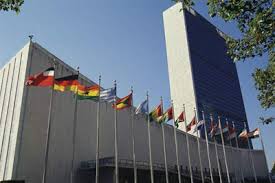
The UN said Monday it had begun repatriating more than 600 people who had fled to the now violence-torn Central African Republic from the Democratic Republic of Congo six years ago.
The United Nations’ refugee agency said it had airlifted a first group of 39 Congolese refugees from Zemio in southeastern CAR to the remote, eastern DR Congo province of Ango on Monday.
“Over the next three weeks, UNHCR plans to repatriate a total of 628 refugees on 12 chartered flights, including the one on Monday,” the agency said in a statement.
The refugees were among some 5,000 people who fled DRC in 2008 and 2009 to escape attacks by the notorious Ugandan rebel group Lord’s Resistance Army (LRA).
The group was at the time running rampant, robbing villagers, looting property, torching homes, kidnapping people, raping women and girls and using children as soldiers and sex slaves, UNHCR pointed out.
The LRA continues to spread terror in the region, and is still present in the Ango area, but UNHCR said all the returnees had said they preferred leaving the Zemio camp, run by the agency, over fears of the volatile security situation in CAR.
Thousands have died and hundreds of thousands of people have fled deadly civil unrest in the landlocked nation since late 2012, including at least 2,800 Congolese refugees who have returned home.
The Congolese government had said it believed the situation in the Ango region was stable enough to allow for return, UNHCR said.
“The refugees were fully informed about the security situation in return areas before they made a final decision to go back,” it said.
UNHCR meanwhile said it was trying to find a lasting solution for the refugees wishing to remain in Zemio, which is facing funding shortages and is in a volatile part of CAR and difficult to access.
It said lacking roads made it impossible to repatriate the refugees over land.
The agency said each returnee would be given $60 to pay for their travel to their villages, and that each adult would receive an additional repatriation grant of $150, while children would get $100 each.
The UN’s World Food Programme (WFP) would also provide cash vouchers for food, it said.


